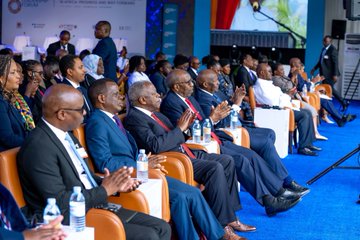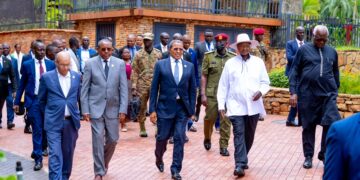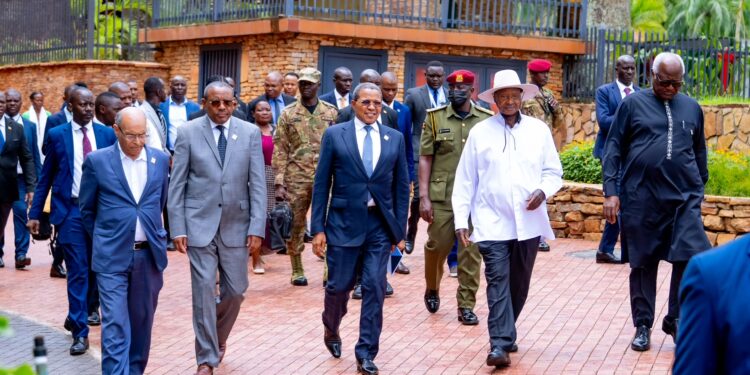President Yoweri Kaguta Museveni has called on African leaders to decisively confront the long-standing strategic obstacles that impede Africa’s path toward genuine socio-economic transformation.
Speaking at the official opening of the 8th African Leadership Forum held at Speke Resort Munyonyo, Museveni emphasized that sustainable development cannot occur without deliberate transformation, both economically and ideologically.
“A baby must grow,” he said, drawing an analogy to biological transformation. “Like a caterpillar turns into a butterfly, Africa must evolve. The idea of ‘sustainable development’ makes no sense if we’re only sustaining underdevelopment.”
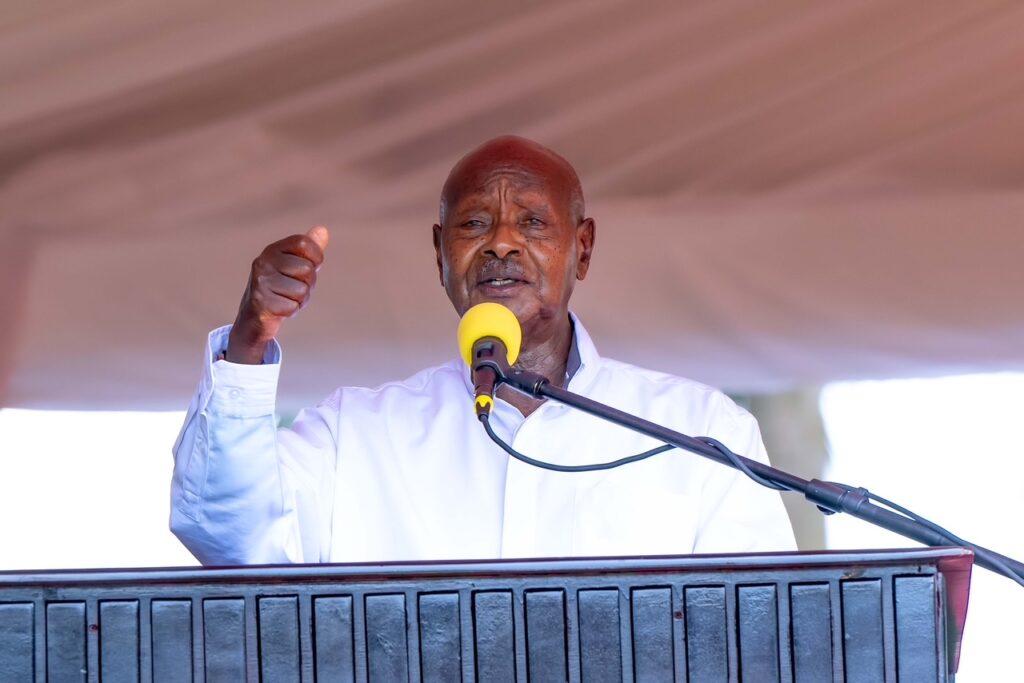
This year’s forum, convened under the theme “Realizing Sustainable Development Goals in Africa: Progress and Way Forward”, focuses on assessing Africa’s progress towards the Sustainable Development Goals (SDGs), identifying challenges, and promoting home-grown solutions to key issues like climate change, youth unemployment, education, and healthcare.
The event brought together prominent African figures, including former heads of state like Sierra Leone’s Dr. Ernest Bai Koroma, Tunisia’s Dr. Moncef Marzouki, and Ethiopia’s Hailemariam Desalegn Boshe. The forum, established in 2014 through the efforts of former Tanzanian President Benjamin Mkapa and the UONGOZI Institute, provides a platform for leaders to engage in forward-looking dialogue on Africa’s development.
In his keynote, President Museveni reflected on the continent’s historical and ideological struggles. He noted that even before independence, the primary challenge was the lack of political power. Post-independence, however, many African states spiraled into instability due to weak institutions and politics driven by identity rather than ideology.
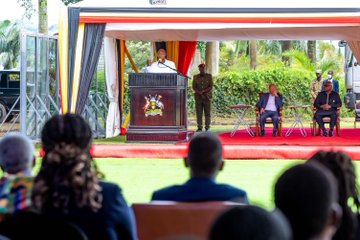
“You cannot build a strong state with tribal, religious, or gender-based politics,” he warned. “We need politics of interest and ideology. Our armies, too, must have a historic mission—not just wear uniforms.”
Museveni also criticized past economic policies, such as the expulsion of Indian entrepreneurs during Idi Amin’s regime, which crippled Uganda’s economy. “Entrepreneurs are crucial,” he said. “When we expelled the Indians, we lost an essential driver of our economy. That was a strategic error.”
He further decried Africa’s continued export of raw materials, which he argued robs the continent of value addition and employment. “Raw coffee fetches $2.5 per kilogram, but once roasted and packaged, it can go for $40. In effect, we are donating wealth and jobs to others.”
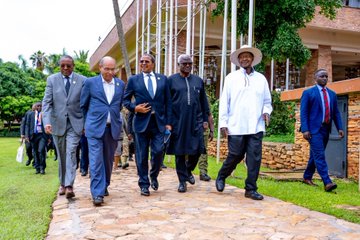
Highlighting Uganda’s resistance to exporting raw iron ore, Museveni said, “Some districts wanted to sell iron ore to India for $47 a tonne. I said over my dead body. We must add value here. Raw materials are a curse if mismanaged.”
The President also stressed the need to expand regional markets, citing Uganda’s surplus milk production. “We produce 5.3 billion litres of milk, yet local consumption is just 200 million. We need wider markets,” he said.
Infrastructure development, according to Museveni, must extend beyond roads to include cost-effective transport systems such as rail and waterways. He also emphasized the importance of investing in human capital—education, health, and skills development—as a foundation for any meaningful transformation.
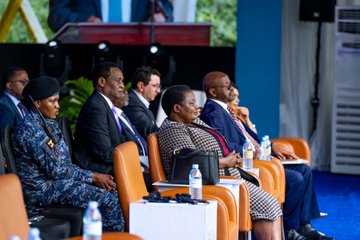
Turning to poverty alleviation, Museveni shared Uganda’s progress in moving citizens from subsistence to commercial production. “In the 1960s, only 10% of Ugandans were in the money economy. Today it’s 68%. This shift came through programs like Entandikwa, NAADS, and Operation Wealth Creation,” he said.
He outlined Uganda’s economic journey through six phases: minimum recovery, expansion, diversification, value addition, a knowledge economy, and now, science and innovation, including vaccine production. “This is what we mean by transformation,” he said.
Ugandan leaders in attendance included Prime Minister Robinah Nabbanja, former premiers Ruhakana Rugunda, Amama Mbabazi, and former Vice President Prof. Gilbert Bukenya.
